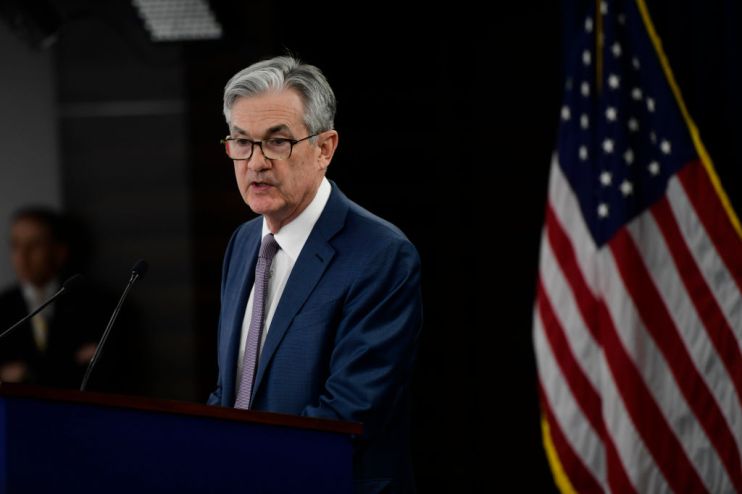Federal Reserve slashes interest rates to zero amid coronavirus chaos

The US Federal Reserve has cut interest rates to near zero this evening in a fresh attempt to shore up the economy amid the devastation caused by the coronavirus epidemic.
The move, which cuts rates to 0.0 to 0.25 per cent, comes just days after an initial emergency cut of 50 basis points, which had lowered the Fed’s rate to one to 1.25 per cent.
President Donald Trump said that the decision was “good news” and that it “makes me very happy”.
In a statement, the Fed said that the outbreak had “harmed communities and disrupted economic activity in many countries” and that it would maintain the basement rate until “it is confident that the economy has weathered recent events and is on track to achieve its maximum employment and price stability goals”.
In addition, the Fed also said that it had undertaken coordinated action with central banks such as the Bank of England (BoE) and the European Central Bank to enhance dollar liquidity around the world through existing dollar swap arrangements.
The BoE said that banks would offer US dollar swaps with an 84 day maturity in addition to existing one week operations, and that the new pricing would remain in place for as long as was necessary.
The first of the two cuts was the first time that the Fed had cut rates outside of a regularly scheduled policy meeting since 2008’s financial crisis.
Sign up to City A.M.’s Midday Update newsletter, delivered to your inbox every lunchtime
The central bank also launched a $700bn programme of quantitative easing in an effort to protect the economy, which has been battered by the outbreak over the last couple of weeks.
The stimulus will take the form of $500bn of Treasury securities and $200bn of agency-backed mortgage securities.
The Fed added in its statement that it “is prepared to use its full range of tools to support the flow of credit to households and businesses and thereby promote its maximum employment and price stability goals.”
Michael Hewson, chief markets analyst at CMC Markets, said: “In a move that caught investors by surprise on Sunday night, the Federal Reserve, along with [other central banks] threw the kitchen sink at the markets as events over the weekend took further turns for the worst across Europe and the US with respect to the coronavirus.
“Central banks have played their part in the past few weeks, it is now up to global policymakers, G7, and or G20 to step with large scale fiscal measures in the coming weeks and months to complement these measures”, he added.
On Thursday US stocks fell to their worst day since 1987’s Black Monday crash before the New York Federal Reserve stepped in with a $1.5 trillion cash injection for spending markets.
US President Donald Trump’s decision to bar arrivals from most European countries – which he has now extended to include the UK and Ireland – had sent continental markets into a spin.